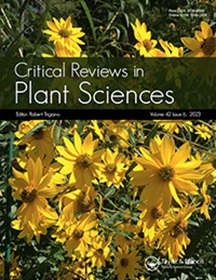Egg Activation in Higher Plants: The Making of a New Generation in Angiosperms
IF 4.9
2区 生物学
Q1 PLANT SCIENCES
引用次数: 0
Abstract
AbstractThe male and female gametes of higher plants are immobile, but compatible gametes can recognize, attach, and fuse to fulfill fertilization and start embryogenesis after sperm cells are released from the pollen tube. The two fusions of egg and central cells with two sperm cells are controlled by accurate regulation mechanisms that ensure one-to-one gamete fusion. Many of the molecules involved in this process remain unknown, especially the egg cell proteins that are responsible for sperm–egg recognition, attachment, and fusion. The cytoplasm of sperm cells can trigger egg activation without the fusion of male and female gamete nuclei, suggesting that a gene controlling egg division is suppressed in the absence of fertilization. Fertilization in higher plants induces structural, physiological, and molecular biological changes in the fused egg, which are collectively known as egg activation. This review focuses on the early changes that occur in the fused egg of higher plants before fusion of the nuclei of male and female gametes.Keywords: Angiospermsegg activationegg divisionfertilizationsperm activation AcknowledgmentsThe authors thank Jennifer Smith, PhD, from Liwen Bianji (Edanz) (www.liwenbianji.cn/) for editing the English text of this manuscript.Disclosure statementThe authors declare that the research was conducted in the absence of any commercial or financial relationships that could be construed as a potential conflict of interest.Additional informationFundingThis work was supported by the National Natural Science Foundation of China [Nos. 31170289].高等植物卵的活化:被子植物新一代的形成
摘要高等植物的雌雄配子是不能移动的,但当精子从花粉管中释放出来后,相容配子可以识别、附着、融合完成受精并开始胚胎发生。卵细胞和中心细胞与两个精子细胞的两次融合由精确的调节机制控制,以确保一对一的配子融合。参与这一过程的许多分子仍然是未知的,尤其是卵细胞蛋白,它负责精子与卵子的识别、附着和融合。精子细胞的细胞质可以在没有雄性和雌性配子核融合的情况下激活卵子,这表明在没有受精的情况下,控制卵子分裂的基因受到抑制。高等植物受精引起融合卵的结构、生理和分子生物学变化,这些变化统称为卵活化。本文综述了高等植物在雌雄配子核融合前,受精卵发生的早期变化。作者感谢Liwen Bianji (Edanz) (www.liwenbianji.cn/)的Jennifer Smith, PhD编辑了本文的英文文本。作者声明,本研究是在没有任何可能被解释为潜在利益冲突的商业或财务关系的情况下进行的。项目资助:国家自然科学基金项目[no . 31170289]。
本文章由计算机程序翻译,如有差异,请以英文原文为准。
求助全文
约1分钟内获得全文
求助全文
来源期刊
CiteScore
12.90
自引率
1.40%
发文量
15
审稿时长
>12 weeks
期刊介绍:
Critical Reviews in Plant Sciences focuses on presenting in-depth and up-to-date reviews of timely and/or cutting-edge subjects in the broad discipline of plant science, ranging from molecular biology/biochemistry through the areas of cell biology, plant pathology and physiology, genetics, classical botany, and ecology, to practical agricultural applications. Articles in the journal provide an up-to-date literature base for researchers and students, pointing the way towards future research needs. The journal is also a significant source of credible, objective information to aid decision makers at all levels.

 求助内容:
求助内容: 应助结果提醒方式:
应助结果提醒方式:


